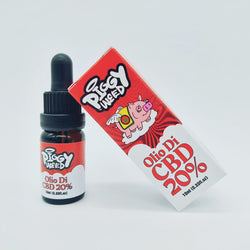For some enthusiasts, researchers and traders HHC (hexahydrocannabinol), a new synthetic molecule produced from legal cannabis, appears to be the manna from heaven: THC-like therapeutic effects without a psychoactive basis, or with mild psychological effects; legality (at present); profit potential.
But is it really all so rosy? To find out, we need to delve a little deeper. learn more about the world of hexahydrocannabinol by discovering all its obvious and hidden characteristics.
HHC, what is it?
There marijuana naturally contains cannabinoids, molecules that interact with the endocannabinoid system present in our organism by binding to the cb1 and cb2 receptors and causing the well-known effects of relaxation, mental activation and lightness. While THC and CBD they are natural cannabinoids present in large quantities in the buds and leaves of weed, Hexahydrocannabinol is synthetically produced and is obtained through a laboratory process.
So, how is it obtained?? There are many ways to synthesize this molecule, but the most common is the Treat CBD natural by putting it under pressure at high temperature and making it interact with hydrochloric acid. In chemical language, hhc molecules they are obtained by replacing a methyl group from carbon 9 in the natural CBD molecule and artificially replacing it with a methyl group from carbon 6.
This synthesis process allows us to obtain a non-psychoactive molecule like CBD, but with effects that are still similar to THC.
What is the difference between HHC and THC?
The first one difference between THC and HHC, as we have seen, concerns the fact that the first is a natural substance and the second a synthetic substance. It seems that THC has greater effects than CBD in terms of mental activation, proving not only a sedative but also a euphoric. The psychoactive aspects of the substance are much more limited, however, making hexahydrocannabinol a cross between CBD and THC in terms of effect. It appears that hexahydrocannabinol as a whole have milder effects than THC but on the other hand much more long-lasting.
HHC: Main Effects
The effects of hexahydrocannabinol They are not as well known and studied as those of the more famous cannabinoids, however the studies that have been done so far seem promising!
This molecule, although having slightly less effective effects than THC and not being as psychoactive as the latter, seems to show interesting results. against pain (analgesia) and against nausea and vomiting (antiemetic). It would also help fight inflammation and would play a role in the fight against anxiety and depression.
The new molecule seems to many to be a godsend, capable of circumventing the ban on THC and of having a enhanced medical cannabis compared to normal legal weed: but is it really like that?
Is HHC legal in Italy?
At the moment this molecule is legal in Italy and the EU mainly due to a gap in the system of legislation, as it is sold as a natural extract of hemp.
The table of narcotic substances in our country does not in fact include this new molecule, but the DPR 390/90 suggests that derivatives of known substances could also be illegal even if they are not yet in the table. The issue is rather doubtful, therefore, even if for now it cannot certainly be said that the new molecule is not legal.
Many argue that HHC should be considered on a par with light cannabis but it is still not clear how crazy it is and what the actual side effects are, so the “drug” table will need to be updated in the future. Hexahydrocannabinol will probably end up being banned as much as THC.
Furthermore, further study is needed how much remains in the blood, both in those who use it often and in those who try it for the first time, even if it does not seem to be detectable by classic drug tests. In any case, rather than these things, it would be better to look at the real convenience of hexahydrocannabinol in terms of Health, as we will see later.
Is HHC harmful?
Many people wonder if hexahydrocannabinol can be harmful in some way if inhaled with vaporizers or digested. In fact, it seems that the molecule has side effects if taken in high doses or too often.
Hexahydrocannabinol is not designed as a psychoactive substance but may still have effects similar to THC such as euphoria and altered state of consciousness. Nice, isn't it? Not really: these molecules produce side effects that also involve dizziness, drowsiness or feeling of sedation, mental confusion.
On a more “physical” level, side effects include dry throat, red eyes and alterations in thirst or appetite.
Some researchers hypothesize that long-term use could lead to damage neurological as well as a strong dependence: for this reason it is good to be cautious and continue to study seriously What does HHC do? establishing whether or not it is a “useful” molecule.
Conclusions
Hexahydrocannabinol seems like a promising molecule, but let's remember that it is still a synthetic substance obtained through a chemical synthesis process, so it is not at all natural like the others that are obtained from the cannabis plant. To create this substance, chemical catalysts are sometimes used such as nickel, which can cause serious problems for those who are sensitive or allergic.
For this reason, and considering that the promised effects are similar to a 100% natural molecule such as CBD, we would say that HHC may be more of a publicity stunt than a revelation.
CBD, naturally present in hemp inflorescences, can be obtained and consumed naturally following the supply chain point by point, even from your own home. Despite recent attacks from a rather short-sighted state, CBD is completely legal in many countries and is used for medical purposes, conquering the space it rightfully deserves.





